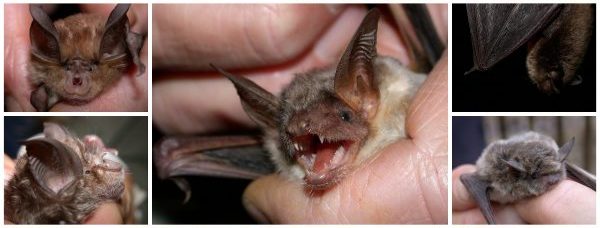For a long time, wild bats have been misrepresented in books, television, and media. They are portrayed as aggressive, scary, diseased rodents that will attack you and infect you with Rabies. It is unfair that bats have been labeled with this harmful (and outrageously incorrect) stigma, especially since they are such an important part of our eco-system. They are truly special animals that deserve to be represented accurately.
Continue reading to clear up some of the most common misconceptions about wild bats, and who to trust for professional bat removal and control information near you.

Louisville Bat Removal 502-553-7622
Common Misunderstandings:
“Bats are Rodents.”
This couldn’t be farther from the truth. Bats are not rodents, they are mammals. In fact, they are more closely related to humans than they are rats and mice! Furthermore, bats are one of the most special mammals because they are the only mammals capable of true flight. Sure, other mammals can float or soar; but bats can actually fly like birds. And they are the ONLY mammal that can!
“Bats Have Rabies.”
Although bats are known carriers of several infectious diseases, like many other mammals, they are not all rabid. In fact, the vast majority of bats are not infected with the Rabies virus. This does not mean that you should attempt to approach, touch, capture, or trap a bat. They can still carry other diseases and parasites that can be quite harmful to people and pets.
“Bat Will Suck Your Blood.”
This is a silly misconception that probably stems from Dracula stories. However, out of more than 1,300 species worldwide, there are only 3 species of Vampire bat that do consume blood, and only one of those species consumes the blood of other mammals. These Vampire bats are native to Latin America, and the species that targets mammals prefers livestock like pigs, cows, horses, and goats; all of which do not mind one bit. The cut they make is so tiny the animal does not feel it, and they barely consume enough blood for the animal to notice.
Furthermore, the bat species that consumes mammal blood does not “suck” the blood. Instead, they lap it up with their tongues. Their saliva has an anticoagulant agent in it that prevents the cut from closing up until they are finished eating. This same anticoagulant has been developed into a medication that helps prevent strokes in humans!
“Bats Will Attack.”
First of all, bats are more afraid of us than we are of them. Secondly, bats are much too agile and smart to come close to a human, let alone get tangled in their hair or scratch up their face. Bats are very unlikely to attack unless they are provoked. A bat that is easily approachable is either sick or injured, both of which can make a bat more defensive and unpredictable. So long as you do not attempt to touch or harm a bat, there is little to no chance they will attack.
“Bats are Blind.”
Although people have used this idiom for hundreds of years, it still rings untrue. Bats are not blind at all. In fact, both suborders of bats see quite well, other than color. This is especially true for Flying Fox or Fruit bats, which have a large visual cortex. Microchiroptera bats, now categorized in the Yangochiroptera suborder, use a biological sonar system called “echolocation.” It’s true they can see just as good as the next mammal, but their echolocating abilities enhance their night vision and allow them to dart and dive for insects with astounding precision.
“Bats are Pests That Should Be Exterminated.”
Out of all the misconceptions that should be cleared up, this is the most important one. Although bats can be nuisances to home and property owners, they are not pests and they should NEVER be harmed or killed under any circumstances. Bats are a vital part of our surrounding Eco-systems. Not only do they play a major role in forest and jungle pollination, they are critical to insect and mosquito control. A single bat can consume more than 1,000 flies, gnats, and mosquitoes in a single night. This makes for a very comfortable backyard and park! Furthermore, bats are a federally-protected mammal, so there are laws against harming or capturing them without proper permits and licenses.
If you have a nuisance bat problem, contact a local Louisville bat removal company for safe, humane, and non-lethal bat extraction and relocation services. They have the experience, knowledge, and resources to promptly remove and relocate a bat to a safe and faraway habitat.
100% Non-Lethal Bat Removal and Control in Louisville

Louisville Bat Removal 502-553-7622
